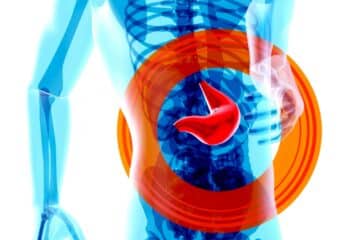Acne is a prevalent skin condition affecting over 650 million people worldwide, often causing physical discomfort and emotional distress. It manifests as pimples, cysts, or nodules, primarily on the face, back, and chest, impacting adolescents and adults alike. While conventional treatments like topical retinoids, benzoyl peroxide, or oral antibiotics are widely used, they can cause side effects such as dry skin or gastrointestinal issues. As a result, many individuals turn to alternative therapies like acupuncture. This blog post explores acupuncture’s potential for treating acne, supported by scientific evidence, and outlines what to expect from this holistic approach.
Understanding Acne
Acne vulgaris, the most common form of acne, is a chronic inflammatory condition of the sebaceous glands, often linked to hormonal imbalances, stress, or gut inflammation. It affects approximately 20% of individuals with moderate to severe cases, with 9.8% prevalence in females and 9.0% in males. The emotional toll can be significant, impacting self-esteem and quality of life. Traditional treatments focus on symptom management, but acupuncture offers a different perspective by addressing underlying causes.
What is Acupuncture?
Acupuncture, a cornerstone of traditional Chinese medicine (TCM), involves inserting thin needles into specific points along the body’s meridians to balance the flow of “qi” (vital energy). In TCM, acne is often attributed to internal imbalances like excess heat, dampness, or toxicity. By stimulating points such as LI11 (Quchi, elbow), LI4 (Hegu, hand), or SP10 (Xuehai, knee), acupuncture aims to reduce inflammation, regulate hormones, improve blood circulation, and enhance the body’s natural healing processes.
How Acupuncture May Help with Acne
Acupuncture’s approach to acne is holistic, targeting root causes rather than just symptoms. According to TCM, acne may result from:
- Excess Heat: Causing redness and inflammation.
- Dampness: Leading to clogged pores and oily skin.
- Hormonal Imbalances: Triggering sebum overproduction.
- Poor Circulation: Hindering skin repair.
By addressing these imbalances, acupuncture may reduce the frequency and severity of breakouts. For instance, points like CV6 (Qihai, below belly button) and LR3 (Taichong, foot) are used to clear heat and activate qi, potentially improving skin health. Additionally, acupuncture may alleviate stress, a known acne trigger, by regulating stress hormones.
Scientific Evidence
Research on acupuncture for acne shows mixed but promising results. A 2018 systematic review and meta-analysis analyzed 12 randomized controlled trials (RCTs) and found no significant difference in lesion count reduction between acupuncture and pharmacotherapies (RR: 1.07 [95% CI 0.98, 1.17] for ≥30% reduction; I² = 8%). However, acupuncture had fewer side effects, with 29 adverse events (e.g., mild pain, bruising) compared to 98 in the control group (e.g., dry mouth, skin desquamation). The review noted low trial quality, urging caution in interpreting results.
A 2021 review in the Journal of Cosmetic Dermatology discussed acupuncture’s mechanisms, suggesting it ameliorates acne by addressing hormonal and inflammatory pathways. A 2011 study cited a 94.17% efficacy rate for acupuncture compared to 82.5% for drug therapy, though the original source’s accessibility is limited, raising concerns about bias. A 2020 RCT protocol aims to assess acupuncture’s impact on quality of life and symptoms in 100 patients with moderate to severe acne, with results pending. A 2010 RCT by Son et al. reported reduced inflammatory lesions and improved quality of life, but lacked a non-acupuncture control.
| Study | Year | Findings | Limitations |
|---|---|---|---|
| Systematic Review (PMC) | 2018 | Acupuncture comparable to drugs, fewer side effects | Low trial quality, small sample sizes |
| Journal of Cosmetic Dermatology | 2021 | Acupuncture addresses acne’s root causes | Review, not primary research |
| Beijing Daxing Hospital | 2011 | 94.17% efficacy vs. 82.5% for drugs | Limited access to original study |
| RCT Protocol | 2020 | Ongoing, focuses on quality of life | Results not yet published |
What to Expect During Acupuncture Treatment
If you’re considering acupuncture for acne, here’s what to expect:
- Initial Consultation: The acupuncturist assesses your health, acne history, and lifestyle to tailor a treatment plan.
- Treatment Sessions: Fine needles (e.g., 0.30 × 40 mm) are inserted into points like Dazhui (CV14), Quchi (LI11), or Hegu (LI4). Sessions last 20-30 minutes, with needles retained to achieve “de-qi” (a sensation indicating energy flow).
- Frequency: Typically 1-2 sessions per week for 4-8 weeks. A 2020 study protocol suggests 12 sessions over 4 weeks.
- Side Effects: Minimal, including bruising, soreness, or mild pain at needle sites. Serious adverse events are rare.
- Complementary Care: Combining acupuncture with a balanced diet, stress management, and proper skincare may enhance results.
Patients often report reduced breakout frequency and improved skin texture after consistent sessions, though results vary. Acupuncture is not a quick fix; patience and multiple treatments are necessary.
Choosing a Practitioner
Select a licensed acupuncturist with experience in treating skin conditions. Check credentials through your state’s health department or professional organizations like the National Certification Commission for Acupuncture and Oriental Medicine (NCCAOM). Some insurance plans may cover acupuncture, so verify coverage beforehand.
Patient Experiences
Many patients report positive outcomes, such as fewer breakouts and clearer skin, after acupuncture. For example, a 2010 study noted improved quality of life alongside reduced lesions. Anecdotally, patients describe less redness and better overall skin health, though individual results depend on factors like acne severity and adherence to treatment schedules.
Conclusion
Acupuncture offers a promising complementary approach for acne, particularly for those seeking alternatives to medications with harsh side effects. While studies suggest it may be as effective as conventional treatments with fewer adverse effects, the evidence is limited by low-quality trials and small sample sizes. Ongoing research aims to provide clearer insights. If you’re struggling with acne, acupuncture could be a holistic option to explore alongside lifestyle changes.
For personalized advice or to schedule a consultation, call us at 414-332-8888. Our experienced practitioners are ready to help you achieve clearer, healthier skin.


